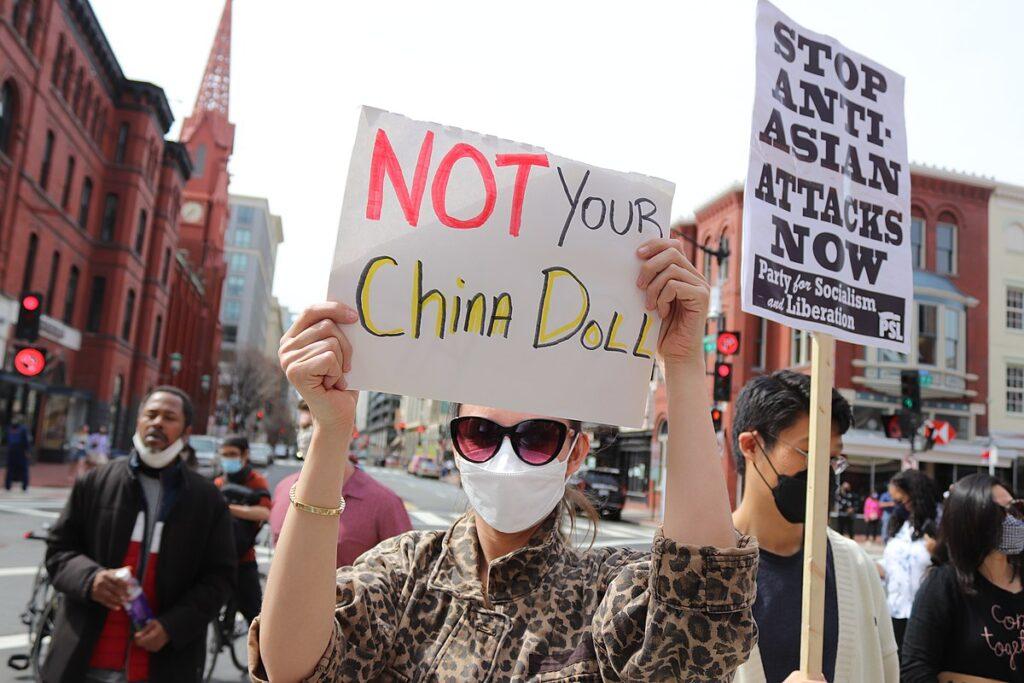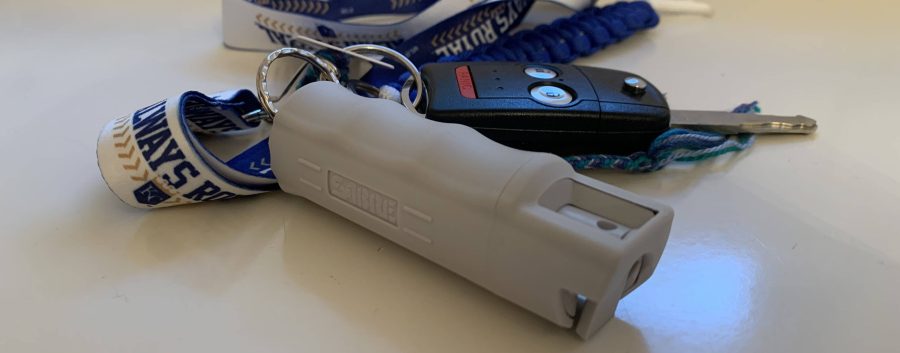Image from Rabble.
In the past 14 months, anti-Asian racism has skyrocketed across the United States as well as throughout the entire world. Although anti-Asian racism is not a new concept, more attention has been given to the issue after the news of a March 16 mass shooting in Atlanta resulting in the eight casualties, among those, six being Asian women. This horrific issue on the rise has a direct correlation to the Covid-19 pandemic.
The ideology that Asians are responsible for the Coronavirus pandemic has been a terrible myth that’s gone on since the beginning of quarantine in 2020. Spread by an unfortunate number of Americans, this belief likely gained popularity after former President Donald Trump blatantly called the virus the “Chinese virus,” on multiple occasions.
Alex Che, the president of the Kansas City Chinese American Association (KCCAA), explains that politicians promoting those ideologies is extremely harmful. “It basically gives some people the impression that Asian Americans are dangerous.” The consequences for statements like Trump’s were not only harassment and assault, but the loss of Asian-Americans’ lives.
In 2020, the tally of anti-Asian hate crimes went up by almost 150 percent. The largest increase was in New York, where 28 were reported to police, in contrast to only three in 2019. This rate has remained high in 2021 as well. And although these numbers might seem low, it is critical to note that they exclude all of the hate-crime occurrences that were not reported. Here are three headlines just from after the new year:
“Thai Man, 84, Dies After Being Attacked in Broad Daylight by Teen in SF.”
“Filipino American Man Slashed In The Face While Riding NYC Subway.”
“Asian American Kansas lawmaker says he was threatened at bar.”
As exhibited by the third headline, anti-Asian hate is not a foreign issue to Kansas City. The most commonly reported anti-Asian discrimination is verbal harrassment. It made up over 70 percent of the nearly 3,000 hate crimes that took place March through December of 2020. Common examples of verbal harassment are screaming phrases such as “Go back to China,” or blaming the pandemic on Asian Americans with remarks like “The Kung Flu.”
Che recalls an experience like this. “One of our [KCCAA] board members has an adopted daughter from China, and last year when she went grocery shopping there was a person behind her at the checkout verbally harassing her. Those kinds of incidents you might see some of on social media but the rest of them are not really broadcasted.”
It is important to consider, however, that anti-Asian racism and hatred in America is not just a recent issue – it has been going on for centuries.
In the mid-1800s, many migrants from East Asia moved to the western United States. They primarily settled in California because of the gold rush and construction of the transcontinental railroad. White Americans of the time, though, were not willing to consider them – just like other POC minority groups – American. They were deemed inferior.
The 1854 California Supreme Court case People v. Hall (1954) kickstarted the allowance for blatant anti-Asian discrimination. The case reversed the murder conviction of George W. Hall, a white California landowner because it declared the testimonies of the Chinese Amercians were illegitimate. The results of this case banned Asian Americans from testifying against white citizens altogether.
As an outcome of People v. Hall, anti-Asian violence was on the rise. White Americans knew there would be no legal consequences for this violence, which further compelled them to do it.
In 1871, there was a Chinese massacre where 10 percent of the Chinese population in Los Angeles was killed by white rioters. Although eight were convicted of manslaughter, the charges were overturned by the court and the convicts were never retried. In 1885, a white mob in Rock Springs, Wyo. murdered 28 Chinese coal miners and burned down the local Chinatown.
Similar to Covid-19, Asian-Americans of the late 1800s were viewed as a threat to the health of other citizens. Rumors that they carried diseases such as smallpox, leprosy, and malaria lead to more drastic government discrimination measures, such as the Chinese Exclusion Act.
The Chinese Exclusion Act was signed into law in 1882 by President Chester A. Arthur. It suspended all Chinese immigration to the United States, and made those who had already immigrated ineligible for citizenship. The law led to immigration restrictions in other Asian and Middle Eastern countries as well. It was in effect for over 60 years, until it was dismantled by the Magnuson Act of 1943.
World War II played a major role in 20th century anti-Asian racism. In response to the bombing of Pearl Harbor, President Franklin Roosevelt issued the Executive Order 9066, forcing all 120,000 Japanese Americans, regardless of U.S. citizenship, into internment camps. They were kicked out of their homes and not allowed to return until the end of the war. What the Roosevelt administration had justified at the time as a measure of national security was initially addressed with $38 million in reparations in 1948. Forty years later, in 1988, Congress passed the Civil Liberties Act, which granted $20,000 in reparations each to Japanese Americans who had been forced into the camps.
However, reparation money does not excuse any anti-Asian hate; whether the Japanese internment camps or the countless other hate crimes and acts of discrimination in American history.
The history needs to be acknowledged, and that’s one of the biggest issues regarding these historic events. Asian American history is not taught to most American students at school. “When I look into the education curriculum, there is a lot of emphasis on European American history, and not much on Asian history and minority history,” Che says. “But Asian people contributed to society a lot. One great example would be the transcontinental railroad. Without the neighbors from China, they wouldn’t have finished it on time – it probably would have taken another decade or two to complete. Things like that sometimes are intentionally forgotten.”
There’s no clear reason why Asian American history is being left out of textbooks, but it may be because white American colonizers are spotlighted as the definition of American, while minorities such as Asian Americans are neglected. “We are Americans,” Che emphasizes. “It doesn’t matter where one came from or where one’s ancestors came from. We, along with other minorities, are as American as everyone else.”
There is a lot that needs to be done to combat anti-Asian racism in America. Americans cannot simply pay off history’s mistakes or condemn one act of hate and call it a day. Luckily, on April 22, the U.S. Senate passed a bill to federally address anti-Asian hate crimes, passing by a 94 to 1 vote. Actually, the one opposing senator was Josh Hawley, from Missouri. The bill plans to make hate crimes more accessible to report, to further train law enforcement on responding to hate crimes, and to introduce public education campaigns on the topic of anti-Asian racism.
Those measures, however, are yet to be executed. Until then, Americans still should put in their own effort to combat anti-Asian racism. Che believes the biggest step Americans can take is to speak up. “Don’t be quiet. Stand up and try to stop hate. If everyone does that, we will have a much better society.”


















































































